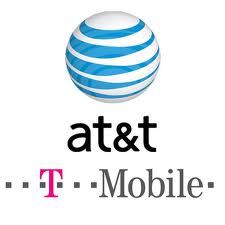- You are here:
- Home »
- Mergers/Competition/Investigations »
- The proposed AT&T acquisition of T-Mobile USA from Deutsche Telekom: initial thoughts
The proposed AT&T acquisition of T-Mobile USA from Deutsche Telekom: initial thoughts
Reported by: Gregory P. Bufithis, Esq. (with special thanks to Johann Jurgens who is a telecom analyst for a hedge fund and is an advisor to The Posse List on the telecom industry)
21 March 2011 — Late yesterday AT&T and Deutsche Telekom announced an agreement for the sale of T-Mobile USA for $39 billion in cash and stocks. It will yield the largest U.S. mobile phone customer base of 130 million users but all commentators agree: the deal will have to pass very tough regulatory review and other closing hurdles before becoming complete. And the antitrust issues are enormous. Even the press releases issues by each company said it’ll take them 12+ months to get through all the bureaucracy — if they get through. In fact AT&T and T-Mobile issued a twenty-eight page PDF to convince regulators that their acquisition wouldn’t violate antitrust law.
Morgan Stanley acted as lead financial advisor and issued a fairness opinion to the supervisory board of Deutsche Telekom. Deutsche Bank and Credit Suisse acted as financial advisors for Deutsche Telekom.
Deutsche Telekom was advised by Wachtell, Lipton, Rosen & Katz (the mergers & acquisitions practice group in New York), as well as Cleary Gottlieb and Wiley Rein (antitrust and regulatory law practice groups, Washington D.C.).
Greenhill & Co., J.P. Morgan and Evercore Partners acted as financial advisors and Sullivan & Cromwell LLP (New York), Arnold & Porter (D.C.), and Crowell & Moring (D.C.) provided legal advice to AT&T.
[ CONTRACT ATTORNEY STAFFING AGENCIES: START YOUR ENGINES!! ]
The proposed network merger will create a de facto GSM monopoly within the U.S. But no worries. AT&T envisions it as a rosy garden of “straightforward synergies” thanks to a set of “complementary network technologies, spectrum positions and operations.”
In the event of the deal failing to receive regulatory approval, AT&T will be on the hook for $3 billion to T-Mobile – the breakup fee — along with transferring over some AWS spectrum it doesn’t need for its LTE rollout, and granting T-Mo a roaming agreement at a value agreeable to both parties. If you do some Google-ing you will find a boatload of technical commentary on the deal.
The cost to consumers? It could be significant. In its press release AT&T pointed to a recent report from the federal Government Accountability Office that said cellular subscription costs fell 50 percent from 1999 and 2009, a period in which the industry has consolidated. But the reaction was swift. The New York Times quoted Senator Herb Kohl who heads the subcommittee on antitrust, competition policy and consumers rights who said Sunday night “The explosion of cellphone usage — especially smartphones — makes competition in this market more important than ever as a check against rising costs. Consumers have borne the brunt of the increasingly concentrated market for mobile phone service”.
AT&T customers, though, could benefit in one notable area: service. Both AT&T and T-Mobile operate on the same technology, known as GSM, so the combination should provide better coverage. That has been a sore point for AT&T, which has been ridiculed over dropped calls and slow data services, especially on Apple’s iPhone.
Our favorite Tweet so far: “Oh for Jebus’ sake! I left AT&T for T-Mobile and now this??? What have I done to offend thee, Malevolent Overlords?”
The deal has long been anticipated in the telecom community and Sprint (who will fare the worst if such a transaction was completed) had its response locked and loaded, and released shortly after the AT&T and Deutsche Telekom press releases went out. Quoting in part from the Sprint reaction:
The combination of AT&T and T-Mobile USA, if approved by the Department of Justice (DOJ) and Federal Communications Commission (FCC), would alter dramatically the structure of the communications industry. AT&T and Verizon are already by far the largest wireless providers. A combined AT&T and T-Mobile would be almost three times the size of Sprint, the third largest wireless competitor. If approved, the merger would result in a wireless industry dominated overwhelmingly by two vertically-integrated companies that control almost 80% of the US wireless post-paid market, as well as the availability and price of key inputs such as backhaul and access needed by other wireless companies to compete. The DOJ and the FCC must decide if this transaction is in the best interest of consumers and the US economy overall, and determine if innovation and robust competition would be impacted adversely and by this dramatic change in the structure of the industry.
We’ll try to report more as the story rolls out, especially if the deal gets to the point of launching subjective document reviews.

